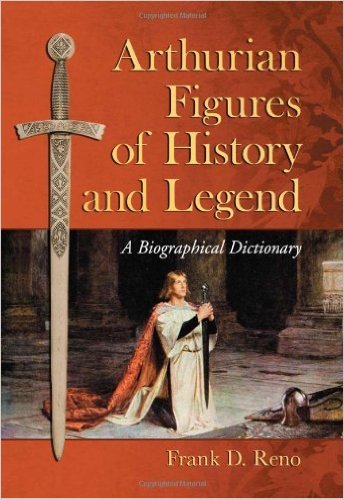Arthurian Figures of History and Legend: A Biographical Dictionary

Arthurian Figures of History and Legend. Frank D. Reno. Jefferson, NC: McFarland, 2011. viii + 264 pp., pbk. ISBN 978-0-7864-4420-5. $39.95.

Reviewed by Donald T. Williams
[This review originally appeared in Mythlore 31.1/2 (#119/120) (2012): 186–187.]
People who are interested in the matter of Britain, especially from the standpoint of history and the possibility of a historical Arthur, will find much to engage them in this book. Two caveats at the outset will keep them from feeling disappointed.
First, though the book’s title proclaims its interest in figures of history and legend, the author is much more interested in history and deals with legend mainly as it is related to history. The entry on Taliessin, for example, concerns itself almost entirely with whether or not the Bard actually existed and has not a single word about Charles Williams’s use of the character—an omission that will loom particularly large for students of the Inklings (223-4). That omission is even more telling in the light of the fact that other modern re-tellers of the Arthur story, even more modern and less significant, are discussed—Marion Zimmer Bradley, for example (184).
Second, the author has a particular historical thesis that he wants to push: that “misinformation has distorted British history of the fifth century by ignoring a bona fide Arthur of the second century and not crediting a great king of the fifth century [Ambrosius Aurelianus] who was conflated with Arthur” (1). “Arthur as a dux bellorum deserves his historic niche in the second century and the romance tales which evolved in the twelfth century and thereafter.” Ambrosius “must be freed from his conflation with Arthur and recognized as Britain’s savior in the fifth century” (4). Reno wrote an earlier book in which he fully lays out and defends this hypothesis: The Historic King Arthur: Authenticating the Celtic Hero of Post-Roman Britain (McFarland, 2007). MaryLynn Saul, reviewing that book for Journal of American Cultures (30:4, Dec. 2007) found its case well-constructed but unlikely to satisfy everyone or be the last word in the solution to the riddle of the historical Arthur (474). Reno, not unnaturally, treats it as if it were.
In sum, though this dictionary slights legend for history, and for a particular version of history, it will still be not only fascinating but useful for exploring the legion of characters that make up the matter of Britain in both history and legend. It covers everyone (except moderns) who appeared in or contributed to either the history or the legend (e.g., there are entries for Malory and Caxton, but not for Tennyson or Charles Williams). It has a number of black-and-white illustrations (maps, photographs, woodcuts), an extensive bibliography of sources and historians, and a useful index: lots of good stuff, if you take the title with a grain of salt.